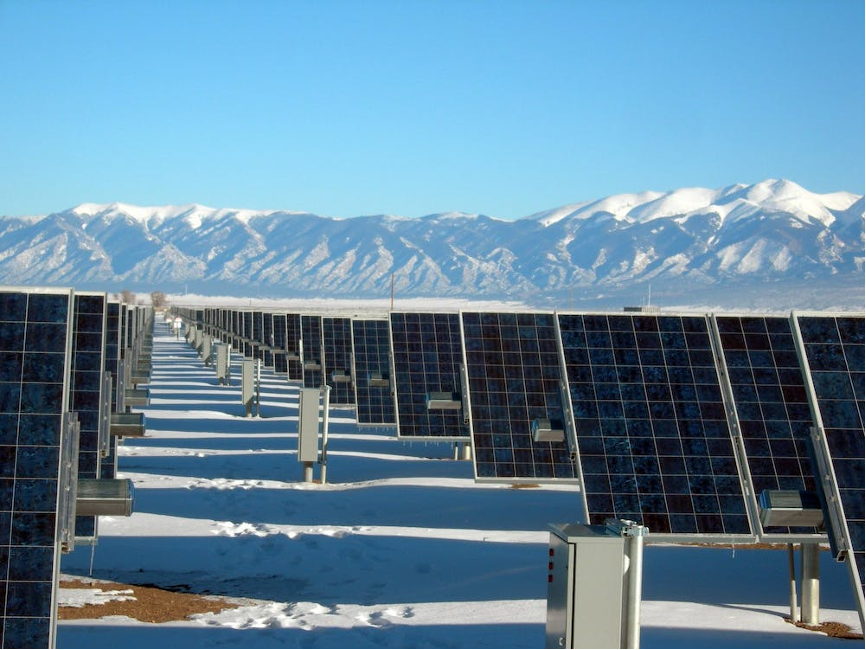As the world becomes more conscious of the need to reduce our carbon footprint and mitigate the effects of climate change, the demand for green energy solutions continues to grow. Solar panels have emerged as a popular and effective method of harnessing renewable energy, providing numerous benefits for both individuals and the environment.
In this article, we will explore how green energy solar panels can help save the environment and contribute to a more sustainable future.
1. Renewable and Clean Source of Energy
Solar panels convert sunlight into electricity through the photovoltaic effect, which means they generate energy without emitting any greenhouse gases or pollutants. Unlike fossil fuels, solar energy is a renewable and clean source of power that does not contribute to air pollution or climate change.
By investing in solar panels, individuals and businesses can significantly reduce their carbon footprint and help combat global warming.
2. Reduced Dependence on Fossil Fuels
One of the main advantages of solar panels by Forever Green Energy is that they reduce our dependence on fossil fuels, such as coal, oil, and natural gas. These non-renewable resources are not only finite but their extraction and combustion release harmful pollutants into the atmosphere.
By shifting to solar energy, we can decrease our reliance on fossil fuels, preserve natural resources, and protect the environment from the negative effects of their extraction and use.
3. Mitigation of Air Pollution
Burning fossil fuels for electricity production is a major contributor to air pollution, releasing pollutants such as sulfur dioxide, nitrogen oxides, and particulate matter.
These pollutants have detrimental effects on human health and the environment, leading to respiratory problems, smog, and acid rain. Solar panels, on the other hand, produce electricity without emitting any pollutants, helping to improve air quality and reduce the risk of associated health issues.
4. Conservation of Water Resources
Traditional methods of electricity generation, such as coal-fired power plants, require vast amounts of water for cooling purposes. This leads to increased water consumption and puts pressure on already scarce water resources.
Solar panels, on the other hand, do not require water for their operation, reducing the strain on water supplies and promoting water conservation. This is especially important in regions that are prone to drought or suffer from water scarcity.
5. Decreased Carbon Emissions
Carbon dioxide (CO2) is the primary greenhouse gas responsible for global warming. The burning of fossil fuels for electricity and heat generation is a significant contributor to CO2 emissions. By utilizing solar panels to generate electricity, we can reduce our carbon emissions and mitigate the effects of climate change.
According to the National Renewable Energy Laboratory, a typical residential solar panel system can offset 3 to 4 tons of CO2 emissions per year, which is equivalent to planting around 100 trees.
6. Energy Independence and Security
Relying on fossil fuels for energy leaves us vulnerable to price fluctuations and geopolitical tensions. Solar energy, on the other hand, provides a decentralized and reliable source of electricity, promoting energy independence and security.
By installing solar panels, individuals and businesses can generate their own clean energy and reduce their reliance on external energy sources, enhancing their resilience in the face of potential disruptions in the energy supply.
7. Long-Term Cost Savings
While the initial investment in solar panels may seem high, they offer significant long-term cost savings. Once installed, solar panels generate electricity for free, reducing or eliminating monthly electricity bills.
Additionally, many governments and utility companies offer incentives, such as tax credits and net metering, to encourage the adoption of solar energy. Over time, the savings on electricity bills can offset the initial investment, making solar panels a financially viable and attractive option.
8. Job Creation and Economic Growth
The transition to renewable energy, including the widespread adoption of solar panels, can stimulate job creation and economic growth. The solar industry has experienced significant growth in recent years, providing employment opportunities in manufacturing, installation, maintenance, and research and development.
According to the International Renewable Energy Agency, the renewable energy sector employed more than 11 million people worldwide in 2018, a number that is expected to continue rising as the industry expands.
Conclusion
Solar panels offer a sustainable and environmentally friendly solution to our energy needs. By harnessing the power of the sun, we can reduce our carbon footprint, decrease our dependence on fossil fuels, mitigate air pollution, conserve water resources, and promote energy independence.
Additionally, the adoption of solar energy can lead to long-term cost savings, job creation, and economic growth. Investing in green energy solar panels is not only a responsible choice for individuals and businesses but also a crucial step towards creating a cleaner and more sustainable future for generations to come.


